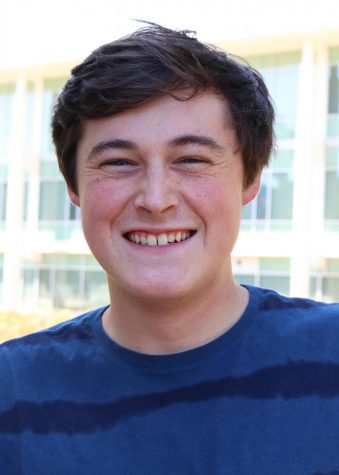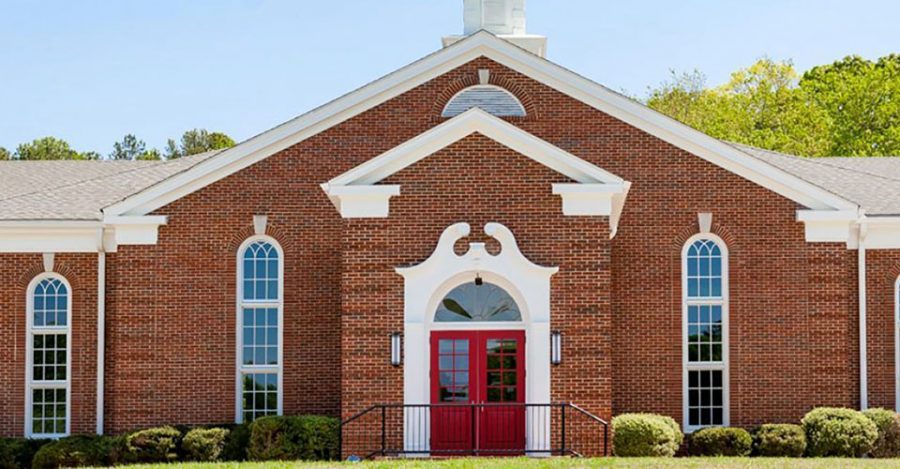United? Methodist Church
On February 26, 2019 at a special session of the United Methodist Church (UMC) General Conference, UMC voted to officially ban LGBT clergy and marriage.
“Some 800+ UMC clergy met last week to vote on two plans concerning the acceptance of LGBT people within the church community,” said junior and UMC member Skylar Livengood. “I watched through my computer screen as they chose to officially forbid gay marriage and clergy from the church.”
The ban comes after a decades-long debate concerning how UMC should include members of the LGBT community in the church. The General Conference voted in favor of the Traditional Plan over the One Church Plan, which would have given individual churches the ability to choose whether or not to allow gay clergy and marriage. Previously, the United Methodist Book of Discipline did not acknowledge the LGBT community.
This decision came as a shock to many Chamblee Charter High School students, who thought that the denomination was going to vote in favor of the One Church plan.
“Honestly, I am disgusted,” said Livengood. “I remember the first time I learned that the Methodist church didn’t recognize the LGBTQ community. I was thirteen, on my way to being ‘confirmed into the faith,’ which basically means becoming an official member of the Methodist church. They gave us a copy of the UMC laws to read over, and there it was. The blatant disregard and rejection of the gay community… But the decision they made last week to actively work against acceptance and equality is somehow even more maddening than the ignorance that previously filled UMC laws.”
That said, junior Clara Watkins is still optimistic that the bill could be nullified.
“My mother is a Methodist pastor, so we live streamed the General Conference and watched all of the decisions being made,” said Watkins. “I know that it is not technically a definite decision right now because [the General Conference] sent the decision to the Judicial Review Committee. So it is under review and could be called unconstitutional [within UMC], and therefore be canceled.”
For LGBT students, the new rule is another thread of hate towards them and their community.
“It is just a big step backwards; it is not necessarily even a message except for, ‘hey, we do not love you.’ I mean that is what I have always perceived,” said an LGBT Chamblee student, who asked to remain anonymous. “When I first started realizing my sexuality in relation to the church, I kind of took the church’s opinion of it as kind of an insult and it made me feel like I did not belong. I feel like for the LGBT youth that belong to these churches, it is just another implicit message of hate.”
The common rhetoric against the inclusion of LGBT individuals in the church is that the Bible strictly forbids it, but senior Henry McKlin seemed to think other aspects of Christianity overrule the biblical texts in this instance.
“The traditional views are rooted in thousand-year-old texts in the Bible, and while I believe no text in the Bible is wrong, this is a case in which Christian values of community and unconditional love override the text,” said McKlin.
Some Chamblee students also offered advice as to how the United Methodist Church could heal itself after this decisive vote. Livengood thinks a split in the denomination is necessary to heal the denomination.
“At this point, I honestly think a split is the best option,” said Livengood. “I wish there was another, but this debate has been going on for the past 20 years or so, with heated opinions on both sides. The main issue that the church faces lies in the fact that the UMC is a global community, with a particularly strong and passionate section in African countries, which overwhelmingly support the Traditional Plan.”
Opposite to Livengood’s belief, Watkins stressed the importance of unity in this important time in United Methodist history.
“I feel like to help heal the church people need to stay because nothing can be fixed if everyone leaves the table, and so I think it is important that people do not give up on the UMC just because of this one bad decision,” said Watkins.
In a similar vein to Watkins, junior Emery Wahlen seemed to think that the UMC needs to revert back to core Christian beliefs.
“[The church needs to] start on a more local level and get individual congregations to either agree on one thing or agree to disagree and try to build up acceptance and love throughout, which is basically what the Bible says anyway,” said Wahlen.
Overall, most Methodist students at Chamblee seemed hopeful toward the future and eventually including LGBT individuals in the denomination.
“I am very heartbroken that this is the decision that [the General Conference] decided,” said Watkins, “but I am encouraged by the fact that the vote was close. It was 54 votes. So the fact that vote was so close encourages me that things could change in the church.”
Your donation will support the student journalists of Chamblee High School Blue & Gold. Your contribution will allow us to print editions of our work and cover our annual website hosting costs. Currently, we are working to fund a Halloween satire edition.

Oliver Hurst is THE senior staff writer. You can find him going to Fernbank, talking about his dog, and binging a show on Netflix. This is his third year on the staff.






